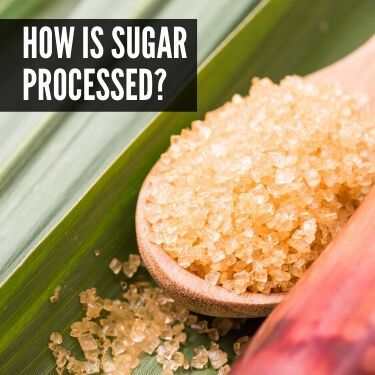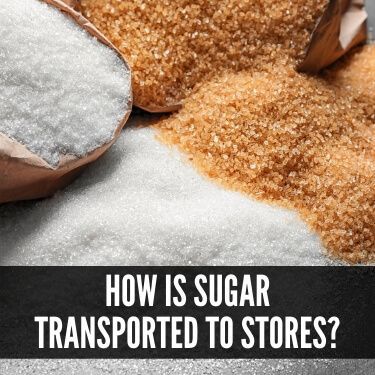When it comes to one of the purest ingredients available on earth, sugar is it. Not only is sugar a natural carbohydrate, but it’s also in abundance and found in many places. Whether you look in fruits, vegetables, or even nuts, you don’t have to look too far to find sugar. What you may not know is that sugar is also found in pretty much every green plant on earth as sucrose is produced by the complex process of photosynthesis. When it comes to harvesting, sugar is taken from sugar beets. Sugar beets are root vegetables that can be found in cooler climates, and, of course, it can be found in sugar cane plants.
As we are sure you are aware, sugar cane plants are found in warmer environments and can grow to around 15 feet tall, sometimes more. Sugar cane and beets are the main places we harvest sugar as they have the highest concentration of sucrose of all the plants on earth. Whether it’s the beet or cane, by the time they have been through the refining process, all impurities are removed, and all that remains is pure sucrose. When shipping sugarcane, there are many important considerations that need to be made.
In this article, we are going to be taking a look at sugar from the field to its final destination. This article is going to be concentrating on sugarcane rather than beets, mainly because the cane process is the most prominent.
Sugarcane, as far as crops go, is possibly one of the most important commercial crops in the world. Sugarcane is a perennial grass that has the capability of reaching around 3 to 4 yards in height and was originally cultivated around 300 B.C. in the Indian subcontinent. Over the years, sugarcane found a path through the rest of the world via trade routes and today it is cultivated in most of the countries that boast warmer climates.
While it is widely thought that the United States produces huge amounts of sugar, which it does, in comparison to some countries, it actually produces very little. The main source of sugarcane in the United States can be found in Florida, Louisiana, Texas, and Hawaii.
It turns out that the biggest producer of sugarcane on earth, in fact, is seated in South America. At the very top of the list sits Brazil; in fact, when we look at the figures, Brazil is producing a huge amount on a yearly basis.
The United States produces an impressive 27,900 thousand metric tons of sugar cane. Brazil, however, produces an enormous 739,300 thousand metric tons, and more than 90% of this comes from the South-Central Region of the country.
What may come as a surprise to some is that while sugar is the main product that is sourced from the sugarcane harvested, it seems that the production of ethanol is also now becoming more popular.
If you are shipping sugarcane from Florida, check out our shipping freight from Florida page. Shipping goods out of Florida is popular for many farmers and there are important details to consider.
The sugarcane refining process takes 10 steps to get from harvesting before it becomes sugar and we are going to be looking at those 10 steps now:

When it comes to sugarcane transportation, there is a very precise process that is followed, no matter where the sugarcane is harvested.
It may be important to note that depending on the country that the sugarcane is harvested in; there may be slight differences in the mode of transportation used, For example, in some poorer countries, bullocks are used. In places like the United States, the transportation method is more modern.
The basic process of sugarcanes journey to the mill is quite simple: The initial stage is the process of loading onto primary transport, which will deliver the cane to a truck. Once the truck is loaded, it will be taken to the mill. Once at the mill, it will be weighed and go through the processes that take place at the mill.
When it comes to sugar being transported to stores, this will require the aid of a reliable and trustworthy logistics company.
While we have become quite familiar with the process of how sugar comes to be, the most important step should really be how the sugar gets to the stores in one piece. With such a long and drawn-out process as shown earlier, you could find yourself using the wrong shipping company and ending up with a damaged consignment and a loss of a valuable product.
Sugar isn't the only sweet stuff on the move. Learn more about transporting maple syrup.

If you are looking for a trusted solution that has many years of experience with a multitude of shipments, then R+L Global Logistics could be the solution you have been looking for. At R+L, we have the capability to move large shipments globally in the most efficient and safest ways.
Whether you are looking to move small amounts or need truckload shipping, you can rest easy knowing that no shipment will be too large for us to handle. Our full service 3PL approach allows us to manage your entire supply chain. From farm to grocery store and everywhere in between, we’ll properly handle your sugar and sugarcane.
When you’re ready to ship request a freight shipping quote or give us a call at (866) 353-7178. Our transportation and logistics experts are ready to help you.
R+L Global Logistics
315 NE 14th St., Ocala, FL 34470